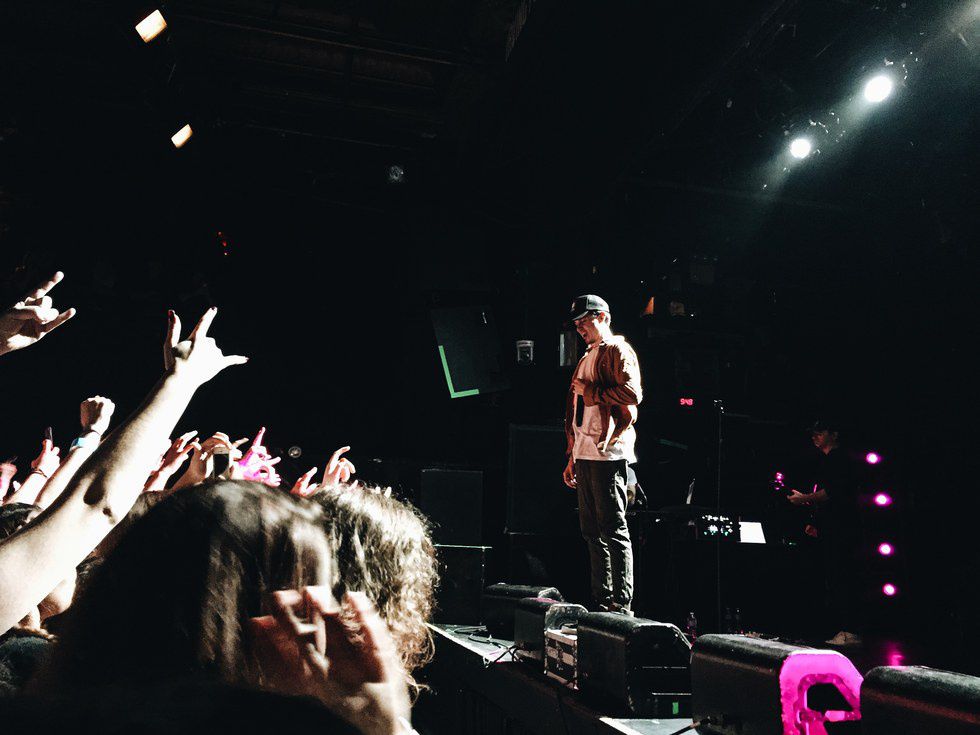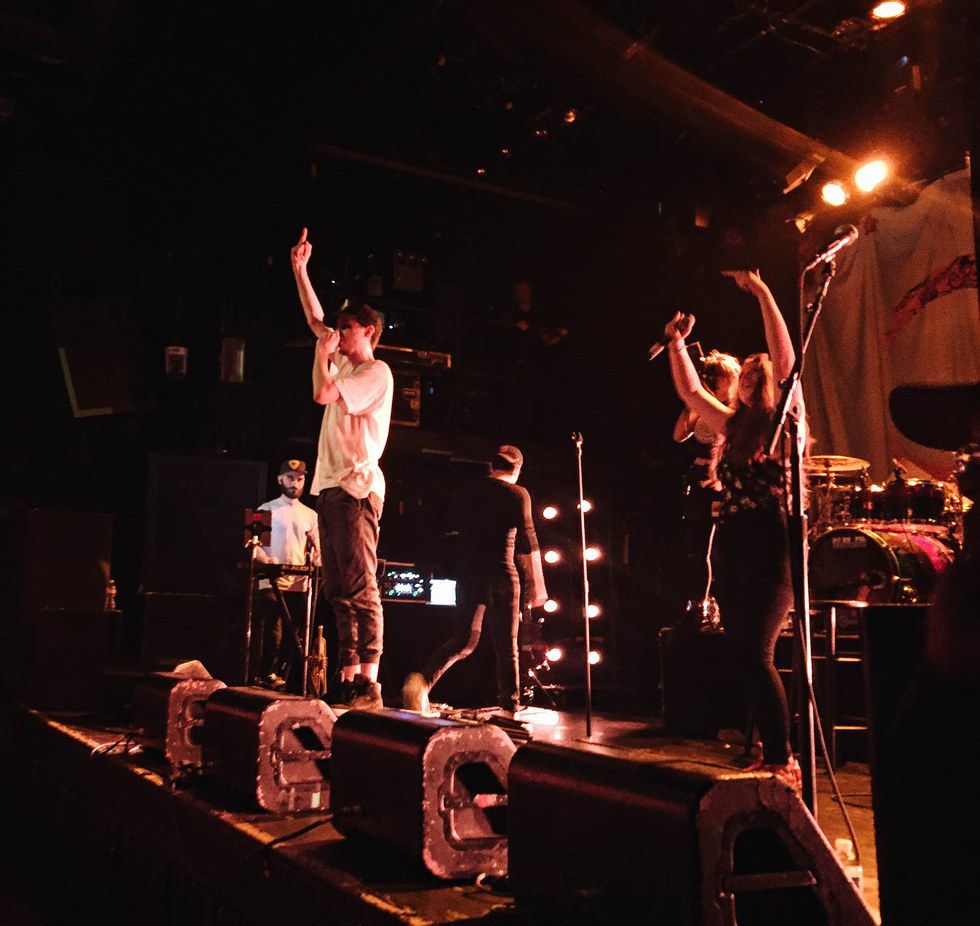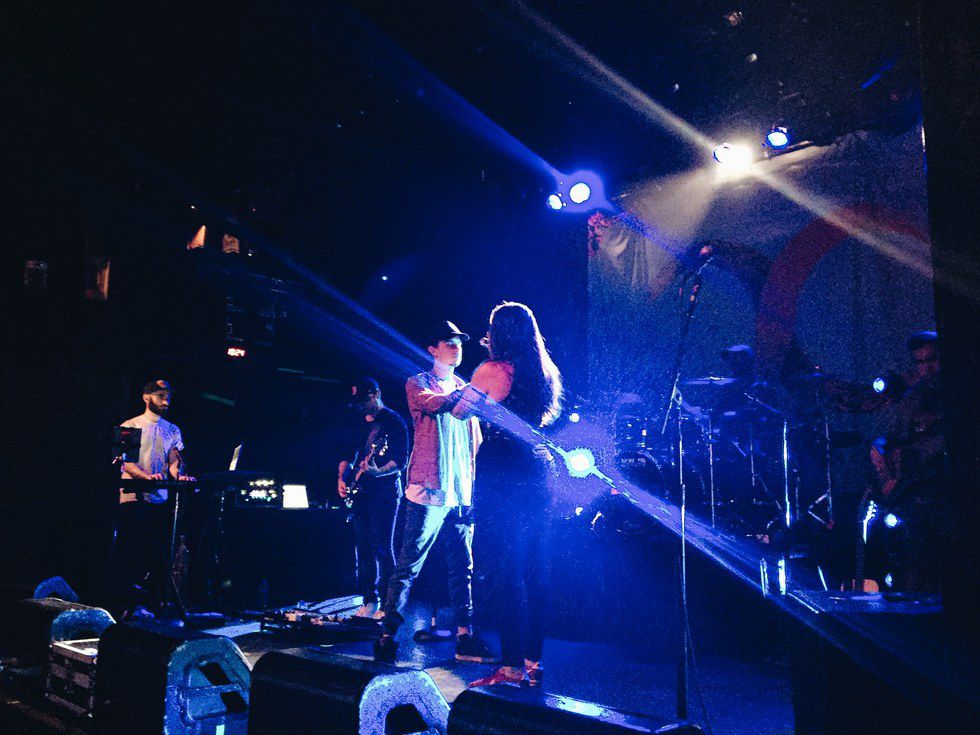One of the most controversial things an artist can do is evolve. There is risk in change, even though it's an inevitability. Fans are often understandably reluctant to let go of that first connection they felt to someone’s music, and in an effort to maintain that, artists can suffer. At the same time, for those open to it, watching the trajectory of an artist’s musical evolution can be one of the most satisfying things about being a fan.
Rapper and spoken word poet Watsky’s Irving Plaza show on his x Infinity tour solidified that feeling of genuine satisfaction and pride for me at having seen an artist come so far and evolve so positively over the years.

Although the tour is named for Watsky’s newest release, the rapper scaled the entirety of his catalog, performing songs from the beginning of his career alongside those he recently released. The straightforward, sometimes silly energy of his older music mingled with more musically experimental songs from his last two albums, but the constants of the night were the intensity of Watsky’s performance and the well-constructed wordplay that ran throughout.
The album, and by extension the tour, feel complete, like we are looking back through the trajectory of a career of a much older musician, albeit one with a lot of energy. Near the end of the show, Watsky performed his Tiny Glowing Screens trilogy, a spoken word poem bookended by two songs. The trilogy took Watsky three years to complete — parts one and two were released on his Cardboard Castlesalbum and part three on x Infinity — and although there was an entire album and a few years of musical growth between them, the trilogy seems to flow together as if this is where Watsky had always known he was headed.

In fact, Watsky has the rare talent of working old material and new material seamlessly together. His new album — which is intimate, political, and at times beautifully nihilistic — could have easily made his older work seem out place when performed together, but the show flowed easily from old to new and back again. Take for example the very beginning of the show. In an unexpected move, Watsky opened by performing “Knots” and “Roses,” two parts of the four-part “Lovely Thing Suite” at the end of x Infinity, the subject of which is Watsky’s thoughts on death. Directly after, Watsky headed into “Moral of the Story,” an upbeat earlier song from Cardboard Castles that plays around with ambition. I don’t think anyone in the audience would have put the three songs together, but although they seem to live in different musical worlds, they are pulled together by the idea of passion – or the lack of it — as a defining aspect of life.
Another line Watsky masterfully treads during his performance is one between humble artist and masterful, confident MC. Neither identity comes off as disingenuous, due in large part to the way Watsky interacts with those who share the stage with him. Producer and bass player Kush Mody and drummer and charming-as-hell MC Chukwudi Hodge had their time in the limelight, along with singer Camila Recchio, who was featured on nearly every song and performed with Watsky as if they had always been a duo. Simply put, Watsky rightly realizes that these wildly talented performers only add to his show, and doesn’t seem to be worried that they’ll detract from his own performance.

Watsky has come a long way from both his Def Jam days and the minute of viral stardom garnered from Pale Kid Raps Fast — the latter of which was referenced jokingly by someone in the crowd as Watsky and Recchio sat to sing a beautiful mash up of “Wounded Healer” and “Sarajevo” — but you get the impression that he doesn’t look down on anything that got him to that stage in Irving Plaza. Like his fans, Watsky sees his evolution and celebrates it.



















